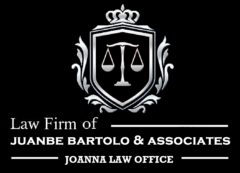Correction of Entries Without Court Intervention in the Philippines: A Guide
In the Philippines, the correction of clerical or typographical errors in civil registry documents can often be done without the need for a court proceeding. The Republic Act (RA) No. 9048, also known as the “Clerical Error Law,” allows local civil registrars to process and approve certain types of corrections administratively, streamlining what was previously a lengthy legal process. This law saves time and resources for individuals seeking to correct minor mistakes in birth, marriage, and death certificates.
What Corrections Can Be Made Without Going to Court?
Under RA 9048 and its amendment RA 10172, individuals can request changes to civil registry documents through the local civil registrar for specific types of corrections. Here are the common types of cases that can be handled administratively:
1. Clerical or Typographical Errors
- Definition: Clerical or typographical errors refer to mistakes in the writing, copying, transcribing, or typing of an entry, such as misspelled names or wrong dates.
- Examples:
- Misspelled first or last names.
- Errors in dates such as the wrong day or month (except the year of birth).
- Incorrect gender notation (under RA 10172).
2. Change of First Name or Nickname
- Process: RA 9048 also allows individuals to request the administrative correction of a first name or nickname if the applicant meets the following conditions:
- The name causes confusion or is embarrassing.
- The name does not match the applicant’s commonly used name.
- The request is for a habitual change in the person’s records.
- Note: Changing the first name, while allowed, requires additional documentary evidence, such as baptismal certificates, school records, or other documents showing consistent use of a different name.
3. Correction of Gender or Date of Birth
- Under RA 10172: Corrections related to the day and month of birth, or the gender of a person, are now allowed administratively without going through the court. However, the year of birth still requires judicial approval.
- Gender Correction: Corrections to the gender notation in civil registry documents can now be processed through the local civil registrar if the mistake was clerical (for example, “male” instead of “female”). Take note that gender cannot be corrected when you have a gender-reassignment surgery.
4. Correction of Place of Birth or Nationality
- RA 9048 covers corrections in the place of birth, provided that the error is clerical or typographical.
The Process of Correcting Entries
Filing for correction is relatively straightforward. Here’s how it works:
- File a Petition: The petitioner must file a formal petition with the local civil registrar where the record containing the error is kept. The petition should be supported by documents like valid IDs, original or certified true copies of the civil registry document in question, and other supporting records (e.g., school records, medical certificates).
- Publication Requirement: In cases of changes to a person’s first name or gender, the petition is subject to a mandatory publication requirement, where the petition is published in a local newspaper once a week for two consecutive weeks.
- Decision: Once the civil registrar approves the petition, the corrections are applied to the civil registry document, and the corrected document is issued.
- Fees: While court hearings are not necessary, there are minimal administrative fees involved, usually set by the local civil registrar.
What Cannot Be Corrected Administratively
It is important to note that not all types of errors can be corrected through the local civil registrar. The following changes still require a court order:
- Corrections involving the year of birth.
- Changes to legitimacy status (e.g., declaring a child legitimate or illegitimate).
- Changes to marital status.
- Adoption-related changes, such as changing the surname of an adopted child.
References:
- Republic Act No. 9048: RA 9048 Full Text
- Republic Act No. 10172: RA 10172 Full Text
Note: Please always consult a lawyer for your legal needs.



